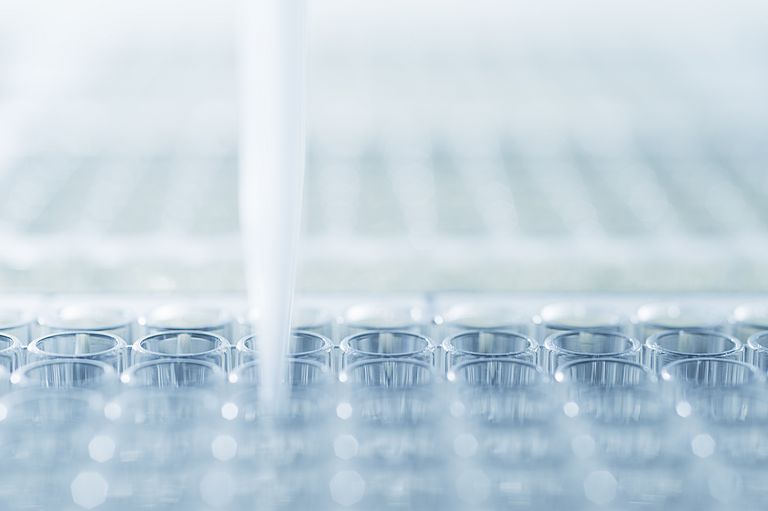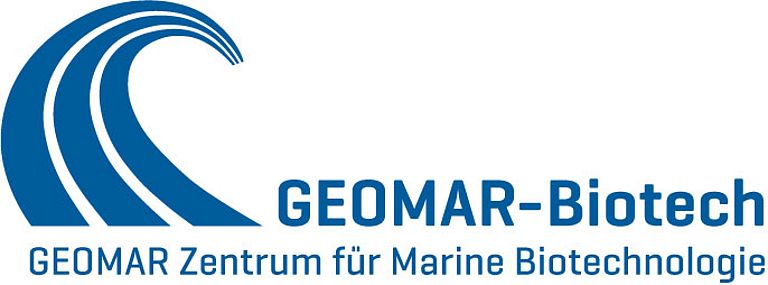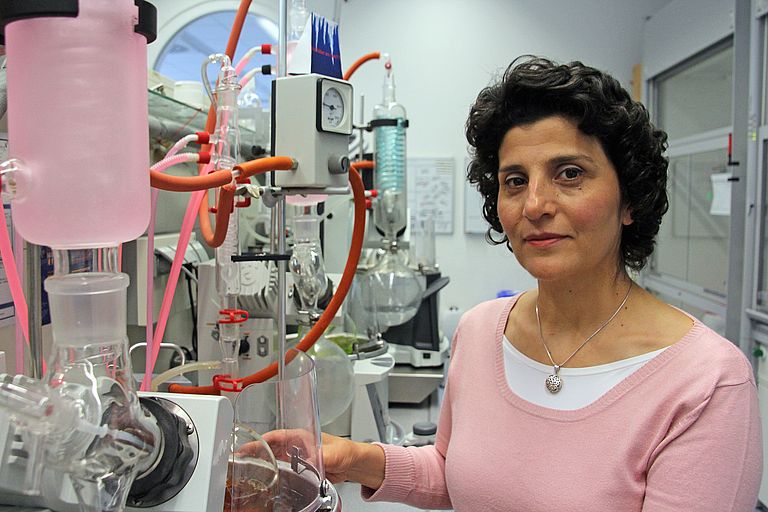GEOMAR-Biotech launched
Marine Biotechnology at GEOMAR with new name and new directions
For many years, active marine substances have already been a research focus at GEOMAR Helmholtz Centre for Ocean Research. Starting from the research unit Marine Microbiology, the Kiel Centre for Marine Natural Products (also known as Kieler Wirkstoff-Zentrum, KiWiZ) was established in 2006 by Prof. Johannes F. Imhoff. Now, after almost a decade, Prof. Dr. Deniz Tasdemir, reshaped and broadened the focus of the research in the field of marine natural products at GEOMAR. Visible signs are the new name GEOMAR-Biotech and the new logo, enrolled today at the facilities of the centre in Kiel.
The director of GEOMAR-Biotech, Prof. Dr. Deniz Tasdemir, has joined GEOMAR through a Helmholtz Recruitment Initiative in 2014. She also leads the newly established Research Unit Marine Natural Products Chemistry within the Research Division Marine Ecology of GEOMAR. “I think, the new name will better reflect the centre’s excellent capacity and infrastructure for research”, Professor Tasdemir says. “Our focus has been extended to cutting-edge natural products chemistry and biotechnology, in combination with highly enhanced chemistry research facilities, international networks and collaborations”, she continued. GEOMAR-Biotech has a unique position in Schleswig-Holstein and in Germany. “I am convinced that the new name and the direction will enable a greater reputation, networking and visibility at regional, national and international levels. GEOMAR-Biotech thrives to be a top research centre and a key partner for large academic or industrial initiatives in Europe and internationally. This development will be supported by an advisory panel comprised of distinguished experts from science and industry.’’
GEOMAR-Biotech will investigate the chemistry, pharmacological activity, ecological functions and biotechnological potential of compounds produced by marine organisms and their microbial associates. It will broaden the excellent research to new marine resources; marine invertebrates (such as sponges), marine plants (such as seaweeds and sea grasses) and organisms that survive in extreme conditions (such as cold, deep polar seas or very hot ocean environments) will be studied. The intense microbial communities (microbiome) contained by these organisms are a major interest because they often are the real producers of the molecules of interest.
GEOMAR-Biotech will apply the most sensitive analytical chemistry techniques as well as recently emerging methodologies, such as omics (genomics, proteomics and metabolomics), and imaging techniques for identification of chemical structures and diversity of marine compounds. By using these techniques, it will be also possible to rapidly profile and monitor the production of key marine constituents under ecological challenges, such as diseases, global warming, ocean acidification, pollution or invasive character.
Marine invertebrates and microbes produce extremely complex, unusual molecules. Compounds designed by nature for multiple ecological functions often exhibit potent pharmacological activities highlighting their potential in development of new medicines. Around ten of which have reached markets to save human lives. A major application area for GEOMAR-Biotech will hence be drug discovery. ‘’During the next decade we would like to make an important contribution to the development of new drugs to tackle the grand challenges of the 21st century, such as cancer and infectious diseases” says Prof. Tasdemir. GEOMAR-Biotech has also identified strong potential for research in the field of aquaculture, including by-products and associated diseases. Further applications of modern marine natural product research lie in the field of functional ingredients, e.g. as new food additives, dietary supplements and cosmetics.
GEOMAR-Biotech has now fully equipped chemistry and microbiology facilities and a highly dedicated team for modern marine biodiscovery and biotechnology research. The facilities will fuel both basic and applied research, as well as product development through industrial cooperation. GEOMAR-Biotech has started close collaborations within GEOMAR and Kiel University, but has also established ties with other national and international institutions and consortia. As the research on marine natural products is linked and applicable to many areas within life sciences, the GEOMAR-Biotech team is looking forward to highly collaborative and innovative research projects, contributing to teaching and training next generation scientists in a multidisciplinary research environment in Kiel.
“The motto of GEOMAR-Biotech will be ‘From Blue Ocean to Sustainable Products’”, Prof. Dr. Peter Herzig, director of GEOMAR, stated. “I am delighted that GEOMAR-Biotech will not only perform highly competitive research in most exciting and emerging areas, but is also engaged in cooperation with academics and commercial enterprises to promote marine natural products to the market for pharmaceuticals, cosmetics, food additives, plant protection and other applications”, he concluded.
Contact:
Dr. Andreas Villwock (GEOMAR, Communication & Media), Tel.: +49 431 600-2802, presse(at)geomar.de





